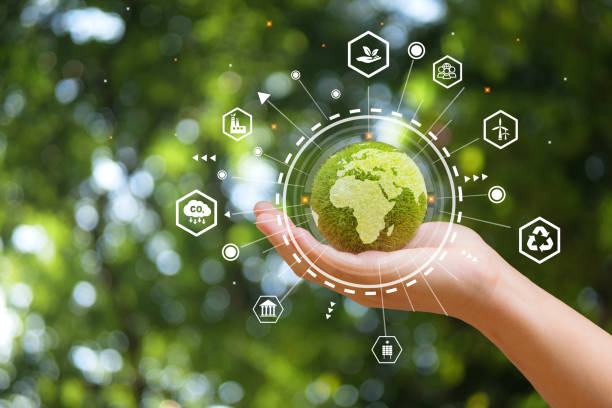Eco-Anxiety: The Hidden Cost of Climate Awareness
The growing recognition of climate change has given rise to a new psychological phenomenon: eco-anxiety. This pervasive sense of dread about the future of our planet is reshaping how individuals view their place in the world and their responsibilities to it. As environmental concerns become increasingly central to public discourse, many find themselves grappling with feelings of helplessness, guilt, and fear. Read below to explore the complexities of eco-anxiety and its impact on modern society.

The Roots of Eco-Anxiety
Eco-anxiety is not a new concept, but its prevalence has grown exponentially in the 21st century. The roots of this psychological phenomenon can be traced back to the environmental movement of the 1960s and 1970s, when concerns about pollution, overpopulation, and resource depletion first entered the mainstream consciousness. However, the current wave of eco-anxiety is fueled by a perfect storm of factors: increasingly dire scientific projections, more frequent extreme weather events, and the ubiquity of climate change information in media and social discourse.
Manifestations and Symptoms
Eco-anxiety manifests in various ways, ranging from mild concern to debilitating fear. Common symptoms include persistent worry about the future, feelings of powerlessness, guilt over personal consumption habits, and a sense of grief for the loss of biodiversity and natural habitats. In severe cases, individuals may experience panic attacks, depression, or even suicidal thoughts related to their environmental concerns. Young people, in particular, are vulnerable to eco-anxiety, as they face the prospect of inheriting a world profoundly altered by climate change.
The Role of Media and Information Overload
The constant barrage of climate-related news and information plays a significant role in exacerbating eco-anxiety. Social media, 24-hour news cycles, and the proliferation of climate change documentaries and reports contribute to a sense of impending doom. While increased awareness is crucial for addressing environmental issues, the sheer volume and often sensationalized nature of climate information can overwhelm individuals, leading to emotional burnout and disengagement.
Coping Mechanisms and Adaptive Responses
As eco-anxiety becomes more widespread, individuals and communities are developing coping mechanisms and adaptive responses. Many find solace in taking concrete actions to reduce their environmental impact, such as adopting sustainable lifestyles, engaging in local conservation efforts, or participating in climate activism. Others turn to eco-therapy, a form of psychotherapy that addresses the emotional toll of environmental concerns and helps individuals develop resilience in the face of ecological challenges.
Societal Implications and Cultural Shifts
The rise of eco-anxiety is driving significant cultural and societal shifts. It has sparked a renewed interest in sustainable living, with many individuals reassessing their consumption habits and seeking out eco-friendly alternatives. This shift in consumer behavior is pressuring businesses to adopt more sustainable practices and develop environmentally responsible products. Additionally, eco-anxiety is influencing political discourse, with climate change becoming a central issue in elections worldwide and driving policy changes at local, national, and international levels.
The Double-Edged Sword of Awareness
While eco-anxiety can be distressing, it also serves as a catalyst for positive change. The heightened awareness of environmental issues has led to increased support for conservation efforts, renewable energy initiatives, and sustainable urban planning. However, balancing the need for urgent action with mental well-being remains a challenge. Experts emphasize the importance of fostering hope and empowerment alongside awareness, to prevent anxiety from leading to paralysis or despair.
Eco-Anxiety in Different Cultural Contexts
The experience and expression of eco-anxiety vary across cultures and regions. In areas already experiencing severe climate impacts, such as small island nations threatened by rising sea levels, eco-anxiety often manifests as a more immediate and existential concern. In contrast, individuals in less affected regions may experience eco-anxiety more abstractly, driven by empathy and concern for global ecosystems and future generations. Understanding these cultural differences is crucial for developing effective strategies to address eco-anxiety on a global scale.
The Future of Eco-Anxiety
As climate change continues to accelerate, eco-anxiety is likely to become an increasingly prevalent mental health concern. Mental health professionals are calling for greater recognition of eco-anxiety as a legitimate psychological issue and advocating for its inclusion in diagnostic manuals. Simultaneously, there is a growing emphasis on developing resilience and coping strategies at both individual and community levels. The challenge lies in harnessing the motivational aspects of eco-anxiety while mitigating its potentially debilitating effects.
In conclusion, eco-anxiety represents a complex intersection of environmental awareness, mental health, and societal change. As we navigate the challenges of climate change, understanding and addressing eco-anxiety will be crucial for maintaining individual well-being and fostering collective action. By acknowledging the emotional toll of environmental concerns and developing strategies to channel these feelings productively, we can work towards a more sustainable and psychologically resilient future.





